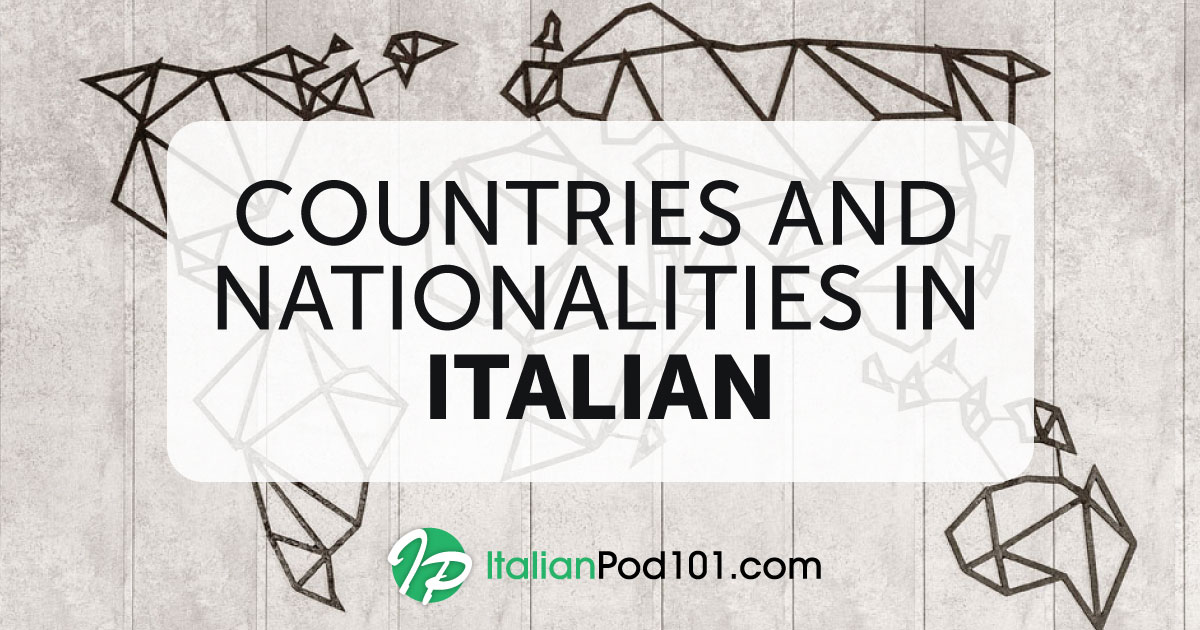
Did you land the perfect job in an Italian design firm? Do you want to start expanding your business in Italy? Are you applying for a job in Rome and need to update your CV and interviewing skills with the proper Italian business language?
We know that workplaces, job interviews, and starting a new job can be stressful. And what about talking on the phone with a client or boss? Not to mention the art of writing the perfect email or a convincing CV. Now imagine having to manage all of this in Italian…
If you want to succeed in any of these activities, you’ll need to master the basic Italian business phrases and vocabulary.

Let’s do business with style!
But don’t worry! We’ve put together this practical guide on how to succeed in the Italian business world. We’ll guide you through all you need to know to be at your best in the most common business situations.
 Table of Contents
Table of Contents
- First Things First
- Business Words and Phrases
- Nail a Job Interview
- Interacting with Coworkers
- Sound Smart in a Meeting
- How to Handle Emails and Business Phone Calls
- Go on a Business Trip
- Conclusion
1. First Things First
In any social situation, the first code that you have to learn is how to greet and address others. In a work or business situation, this is even more important. So let’s start by going over the correct way to meet and greet in Italian.
1 – Greetings
First of all, you’ll need to say hello. The best Italian business greetings for this are:
- Buongiorno (“Hello,” but literally “Good day”)
- This can be used in formal and informal settings, and it’s the appropriate greeting to use until the early afternoon.
- Buonasera (“Good evening”)
- This is the greeting that you start using in the late afternoon.
- Ciao (“Hello”)
- This is a very informal way of greeting, and it can be used only in situations where everybody is very informal, or if you know everybody very well.
Now, if you’re in a business meeting and need to introduce yourself for the first time, here are the most common formulas:
- Piacere (“Nice to meet you,” but literally “Pleasure”)
- It’s actually the shorter version of the next phrase.
- Piacere di conoscerla (“It’s a pleasure to meet you”)
- Molto piacere (“Really nice to meet you”)
- This is just another version of the same formula.
In professional settings, you’re expected to use the appropriate title to address professionals. Some examples include:
- Dottore / Dottoressa (“Doctor”) – This one is also used for anybody with a university degree.
- Avvocato (“Lawyer”)
- Ingegnere (“Engineer”)
- Architetto (“Architect”)
When it’s time to leave the office, just use the most common goodbye phrases:
- Arrivederci (“Goodbye”) is the best way to bid farewell in Italian, since it can be used in both formal and informal situations. Additionally, it can be used to address a single person or a crowd, as it literally means “We’ll see each other.”
- If you want to be more formal, use Arrivederla, which is the same formula, but using the Lei form (which we’ll review below).
- Ciao (“Bye”) is a good option if you’re very familiar with your coworkers. In Italian, it means both “hello” and “bye.”

Arrivederci!
2 – “Tu” or “Lei”?
Like other Romance languages, Italian has two different forms for addressing people in the second person, depending on the degree of familiarity or informality of the situation.
In professional settings, it’s normally expected for you to address everybody with the formal “you” (lei). Notice that while it looks like the pronoun for “she,” lei agrees with the gender of the person.
- Signor Rossi, Lei è mai andato in barca a vela? (“Mr. Rossi, have you ever sailed?”)
The rule of thumb is that you formally address all people that are older than you, those who are hierarchically higher than you, and unfamiliar people in formal settings.
Nowadays, especially in typically younger workplaces (startups, design firms, new-economy, etc.), it’s becoming more and more common to address everybody informally. But just to be sure:
- See if the people around you use tu or lei and do the same.
- Wait for your interlocutor to ask: Possiamo darci del tu? (“Can we switch to informal you?”).
2. Business Words and Phrases

Here is the most basic Italian business vocabulary you should know.
1 – The Company
Depending on your line of business, you probably work in one of these places:
- Una società / Un’azienda / Un’impresa (“Company”)
- Un’agenzia (“Agency”) – usually refers to marketing, advertising, or a generally creative workplace
- Un ufficio (generic “Office”)
- Una fabbrica (“Factory”) – not to be confused with fattoria, which means “farm”
- Un laboratorio (“Laboratory”)
Because there are many different types of companies, you’ll probably hear the following definitions to describe a specific Italian business:
- Società per Azioni (Spa) is a company with shares in the stock market.
- Società a Responsabilità Limitata (Srl) is a company with limited responsibility.
- Cooperativa (“Cooperative”)
- Multinazionale ( “Multinational”)
- Azienda familiare (“Family business”)
- Un’associazione (senza fini lucrativi) (“A non-profit organization”)
2 – Let’s Talk About Work
Here’s a basic Italian business vocabulary list with the basic words and expressions for talking about work.
- Lavorare (“To work”)
- Lavoro / Mestiere / Occupazione (“Job”)
- Professione (“Profession”)
- Cercare lavoro (“To look for a job”)
- Annuncio di lavoro (“Job listing”)
- Assumere (“To hire”)
- Assunzione (“Recruitment”)
- Lavoretto [Casual] (“Job”)
- Posizione (“Position”)
- Carriera (“Career”)
- Contratto di lavoro (“Contract”)
- Licenziare (“To fire”)
- Licenziamento (“Dismissal”)

Sono stato licenziato… (“I was fired…”)
3 – The Workplace
Here are some business Italian words and phrases regarding various elements in a typical workplace. For example, different positions and responsibilities, management, and the place of work itself.
- Il personale (“The staff”)
- Impiegato/a (“Employee”)
- Funzionario/a (“Employee of a public service”)
- Stagista (“Intern”)
- Il capo (“The boss”)
- Amministratore delegato (“CEO”)
- Direttore / Direttrice (“Director”)
- Datore di lavoro (“Employer”)
- Consiglio di amministrazione (“Board of Directors”)
- Risorse umane (“Human Resources”)
- Il capo del personale (“Chief of Staff”)
- Area di marketing (“The marketing department”)
- Area di vendita (“The sales department”)
- Area tecnica (“The technical department”)
- Ufficio contabilità (“The accounting department”)
4 – Talking About Money
Talking about money is inevitable when discussing jobs or business, so here’s the essential vocabulary for money talk:
- Lo stipendio (“The salary”)
- L’aumento di stipendio (“The salary increase”)
- La busta paga (“The payslip”)
- Un anticipo (“An advance payment”)
- Detrazioni sullo stipendio (“Payroll deductions”)

Let’s talk about money, shall we?
- Le tasse (“The taxes”)
- Il budget (“The budget”)
- Il bilancio (“The financial statement”)
- I ricavi (“The revenues”)
- Il costo (“The cost”)
- Il margine (“The margin”)
- Il profitto (“The profit”)
- Il volume d’affari (“The turnover”)
- Gli affari (“Business,” as in doing business)
- Un affare (“A deal,” as in closing a deal)
- Le azioni (“The stocks”)
- Il mercato azionario (“The stock market”)
- Le azioni salgono (“Stocks are rising”)
- Le azioni scendono (“Stocks are declining”)
- Le azioni sono crollate! (“Shares have collapsed!”)
3. Nail a Job Interview

So, you’ve sent your curriculum (“CV”) and have made it to a colloquio di lavoro (“job interview”) for your lavoro ideale (“dream job”) in Italy. And now? Well, you already know how to greet, introduce yourself, and properly address your interlocutor. Now it’s time to prepare for typical job interview questions and start talking about you and your past experiences!
- Mi parli di lei. (“Tell me about yourself.”)
- Quali sono le sue esperienze lavorative? (“What are your work experiences?”)
- Ha esperienza professionale in questo campo? (“Do you have professional experience in this field?”)
Be prepared to answer questions about your good qualities and shortcomings:
- Quali sono le sue migliori qualità? (“What are your best qualities?”)
- Faccia la lista di tre suoi difetti. (“List three shortcomings.”)
- Racconti un suo successo professionale. (“Tell me about a professional achievement.”)
- Parli di un problema lavorativo e come lo ha superato. (“Talk about a professional problem and how you got over it.”)
- Qual è il suo punto forte/debole? (“What is your strength/weakness?”)
Another important factor in job interviews is to show your motivation and willingness to be a team player!
- Perché ha deciso di cambiare lavoro? (“Why have you decided to change jobs?”)
- Perché pensa di essere la persona giusta per questa posizione? (“Why do you think you are a good fit for this position?”)
- È abituata al lavoro di squadra? (“Are you used to teamwork?”)

What are your hobbies?
But none of this matters if you don’t leave a good impression on your interviewer. So, be prepared to have something fun to say when you’re asked:
- Come passa il tempo libero? (“What do you do in your free time?”)
- Mi parli dei suoi hobby. (“Tell me about your hobbies.”)
And last but not least, don’t forget to show decisiveness in your stretta di mano (“handshake”).
4. Interacting with Coworkers
Ottimo lavoro! (“Good job!”)
Now you’re the neo-assunto (“newly hired”) at an Italian company and it’s time to meet your colleghi (“coworkers”).
Like in many offices around the world, it’s probable that your scrivania (“desk”) will be in an open space, with no walls (and no privacy!). This means that fare amicizia (“making friends”) with the other employees will happen a lot faster than in closed office environments, and you can help out (and ask for help) more often.
Here’s some useful Italian for business conversations with coworkers:
- Possiamo darci del tu? (“Can we switch to informal you?”)
- Posso chiedere un favore? (“Can I ask you a favor?”)
- Hai bisogno di aiuto? (“Do you need help?”)
- Ho un problema con la stampante. (“I have a problem with the printer.”)
- È finita la carta della fotocopiatrice. (“We are out of photocopy paper.”)
- Facciamo una pausa caffè? (“How about a coffee break?”)
- Ti va un’apericena dopo il lavoro? (“Are you up for a drink after work?”)
5. Sound Smart in a Meeting
Riunioni (“Meetings”) are an important part of every job. Sometimes they are brief and to the point (called briefing in Italian, too), and sometimes they are endless and pointless… But still, you need to prepare yourself for them, right?
Here are some useful phrases to help you out in Italian business meetings:
- A che ora comincia la riunione? (“What time is the meeting?”)
- È pronta la presentazione / il powerpoint? (“Is the slideshow ready?”)
- In questa slide presento il grafico del 2019. (“In this slide, I show a 2019 graph.”)
- Vorrei suggerire una modifica. (“I would like to suggest a change.”)
- Vorrei sentire la vostra opinione. (“I would like to hear your opinion.”)
- La riunione si farà in video-conferenza. (“The meeting will be on a video conference.”)
- Puoi condividere lo schermo? (“Can you share your screen?”)
- Sono d’accordo. / Non sono d’accordo. (“I agree.” / “I disagree.”)
And of course, you’ll need to talk about projects and deadlines, as well as negotiate with your supervisors:
- Le diverse fasi del progetto (“The different stages of the project”)
- Quando è la scadenza? [Leri!] (“When is the deadline?” [“Yesterday!”])
- La scadenza è dietro l’angolo. (“The deadline is around the corner.”)
- Il progetto sta andando benissimo. (“The project is going very well.”)
- Qual è la mia funzione / il mio compito nel progetto? (“What is my role / my task in the project?”)
Sometimes it’s necessary to raise concerns:
- Non c’è abbastanza tempo. (“There is not enough time.”)
- Non abbiamo il budget per ___. (“We don’t have the budget for ___.”)
- Non abbiamo le risorse per ___. (“We don’t have the resources for ___.”)
- L’obiettivo non è realistico. (“This goal is not realistic.”)
- C’è un errore in questi dati. (“There is a mistake in this data.”)
- Chi prepara la documentazione? (“Who is in charge of the documentation?”)

Thank you for your attention…
You might even need to apologize from time to time. Don’t be afraid of it!
- Mi dispiace. (“I’m sorry.”)
- Non si ripeterà. (“It won’t happen again.”)
- Scusate il ritardo. (“Sorry I am late.”)
And at the end of the business meeting, thank and congratulate everybody:
- Grazie della partecipazione. (“Thanks for the attendance.”)
- Ottimo lavoro! (“Great work!”)
- Bel lavoro di squadra! (“Good team work!”)
6. How to Handle Emails and Business Phone Calls
Among the most useful Italian business phrases are those for business phone conversations and letters/emails.
First, once and for all, let’s clear a doubt that most Italians still have: The Italian dictionary considers the forms e-mail or mail to be correct (though many people also write email…). And, in case you were wondering, it’s a feminine noun: un’e-mail / la mail. Note that some people still call it la posta elettronica. Very retro, isn’t it?
Here are a few Italian business email phrases that are sure to come in handy:
- Devo rispondere a un mare di e-mail. (“I have to answer a ton of emails.”)
- Mi dai la tua e-mail? (“Can you give me your email address?”)
- Il destinatario (“The recipient”)
- Il mittente (“The sender”)
- L’oggetto (“The object”)
- il corpo della mail (“The body of the email”)
- Ho dimenticato l’allegato… (“I forgot the attachment…”)
Emails and formal letters tend to use many of the same formulas for addressing the recipient:
- Spettabile (“Esteemed”) is used when we are addressing a company or firm.
- Gentile (“Dear,” but literally “Kind”) is used when we are addressing a woman. It can be followed by her title and name.
- Gentile Sig.ra Maria Rossi
- Gentile Dott.ssa Anna Verdi
- Gentile Arch. Carla Bianchi
- Egregio (“Dear,” but literally “Egregious”) is used when we are addressing a man. It can be followed by his title and name.
- Egregio Sig. Mario Rossi
- Egregio Prof. Luca Verdi
- Egregio Avv. Gino Bianchi
You can write whatever you want in your letter or email, but make sure the closing follows the conventions of Italian business correspondence. Here are some formulas for a proper Italian business email sign off or letter closure that you can copy-paste (copia e incolla) in your emails/letters. We’ll start with the most formal and end with the most relaxed and friendly:
- In attesa di un Suo riscontro, voglia gradire i miei più cordiali saluti. (“Pending your feedback, please accept my best regards.”)
- La ringrazio per l’attenzione e La saluto cordialmente. (“Thank you for your attention and best wishes.”)
- Distinti saluti. (“Yours sincerely.”)
- Cordiali saluti. (“Best regards.”)
- Grazie e a presto. (“Thank you, see you soon.”)
When using formal language, you’re supposed to capitalize the initial letter of the personal pronoun (Suo, La, etc.). But nowadays, some people consider it to be very archaic and prefer not to. (Like me, for example!) 😉
The good thing about writing an email is that you have time to think about what you want to say and to make corrections before sending it. Not so for phone calls, where you have to be on your toes and prepared to improvise.
To help you out, here are the essential phrases for handling any phone call with no stress at all!
- Pronto? (“Hello?”) – Literally, it means “ready,” and you better be ready for what comes next…
- Con chi parlo? (“Whom am I talking to?”)
- In cosa posso aiutarla? (“How can I help you?”)
- Posso parlare con ___, per favore? (“May I please talk to ___?”)
- Può/puoi passarmi ___, per favore? (“Can you please pass me [to] ___?”)
- Un attimo. / Resti in linea. (“One moment.” / “Hold on.”)
- Al momento non è al suo posto / alla scrivania. (“At the moment, he/she is not at his/her desk.”)
- Vuole lasciare un messaggio? (“Do you want to leave a message?”)
- Disturbo? / È occupato/a? (“Am I bothering you?” / “Are you busy?”)

Just one more email…
7. Go on a Business Trip
Many job descriptions include the need for traveling (disponibilità a viaggiare). Business trips can be a lot of fun, but let’s face it: sometimes they turn out to be nightmares. But let’s stay positive and prepare for a really nice viaggio di lavoro (“business trip”).
When you go on a business trip, you might go to visit other offices of your company:
- La sede (“The head office”)
- La succursale (“The branch”)
- La filiale (“The subsidiary”)
You might go to an event:
- La conferenza (“The conference”)
- Il convegno (“The convention”)
- Un corso di aggiornamento (“A refresher course”)
- Una fiera internazionale (“An international fair”)
No matter the reason or location, you’ll need to get organized and make a few arrangements:
- Prenotare il volo / l’albergo (“Book the flight / the hotel”)
- Hai prenotato il volo per Roma? (“Did you book your flight to Rome?”)
- Ho prenotato l’albergo a nome Rossi. (“I booked the hotel on behalf of Rossi.”)
- Il check-in (“Check-in”)
- A che ora apre il check-in? (“What time does the check-in open?”)
- A che ora apre il check-in? (“What time does the check-in open?”)
- Un pranzo di lavoro (“A business lunch”)
- Ho incontrato il cliente ad un pranzo di lavoro. (“I met the client at a business lunch.”)
- Incontrare all’aeroporto (“Meet at the airport”)
- Possiamo incontrarci all’aeroporto e prendere un taxi insieme? (“Can we meet at the airport and share a taxi?”)
And then it’s time to go back home:
- Comprare un souvenir all’ultimo minuto (“Buy a last-minute souvenir”)
- Conservare gli scontrini (“Saving the receipts”)
- Chiedere il rimborso spese (“Ask for reimbursement”)
8. Conclusion
How do you feel about Italian business language now? Are you ready to plunge into business letters and emails, phone calls, and coffee breaks? In this guide, you’ve learned the most common and useful business phrases in Italian, and you’re now ready to go to work and get down to business in Italian!
Are there other phrases or expressions that we missed? If you have any questions or suggestions, please leave us a comment below!
And don’t forget to take advantage of all the free resources on ItalianPod101.com. Here, you’ll find grammar lessons, vocabulary lists, and tons of audio and video material to get you ready to spend the time of your life in Italy.
Do you need more? With our Premium PLUS service, you can have unlimited access to a teacher and one-on-one coaching. With MyTeacher, you’ll learn at your own pace with fast, fun, and easy lessons, and at the same time get personalized feedback and advice.
Keep up the good work!










